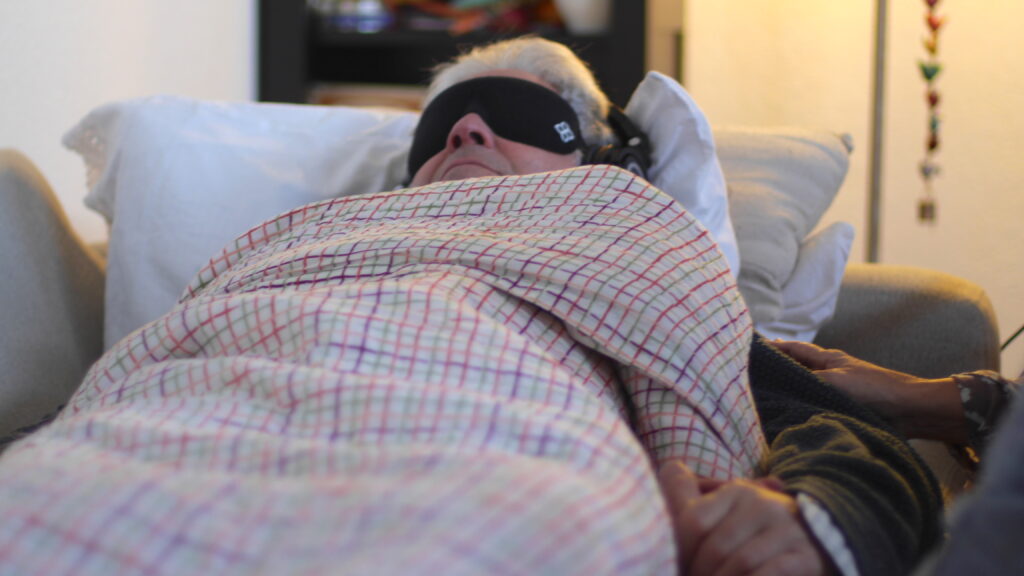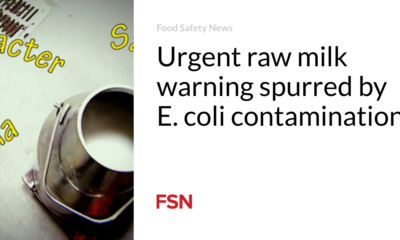Health
MDMA papers withdrawn due to data

TThe journal Psychopharmacology has retracted three articles on MDMA-assisted psychotherapy — on the heels of the Food and Drug Administration’s rejection of the closely watched treatment for post-traumatic stress disorder.
Many authors of the three studies are affiliated with the nonprofit Multidisciplinary Association for Psychedelic Studies (MAPS) and its commercial spinout Lykos Therapeutics, including founder Rick Doblin, who spearheaded the decades-long effort to gain approval for the psychedelic treatment. Lykos CEO Amy Emerson is also an author.
The withdrawals were due to “protocol violations amounting to unethical conduct,” specifically during a Phase 2 trial at the MP4 study site in Canada, Psychopharmacology said. This site is what an unlicensed therapist was accused of doing sexual abuse in civil court by a participant in the MAPS process.
The authors of the articles, published in 2020 and 2021, confirmed that they knew some of the data was linked to ethical violations when they submitted the articles, according to Psychopharmacology’s retraction. But they didn’t disclose that to the magazine or remove data from the site from their analysis.
“This is a powerful message that psychedelic research will and must meet a high standard of ethics and responsibility,” said Boris Heifets, a neuroscience researcher at Stanford University who studies psychedelics.
Data integrity issues and research bias have been an ongoing concern during Lykos’ ill-fated attempt to gain approval for MDMA-assisted therapy. In March, the Institute for Clinical and Economic Review think tank said published a report That raised questions about whether participants’ serious side effects, including extreme mental distress, were accurately reflected in the study data.
Activist groups are also calling on regulators and academics to further scrutinize the reliability of Lykos’ data, in part because of reports of suicidality and abuse among a small number of trial participants. On Friday, the FDA said Lykos would need to conduct another Phase 3 trial to further investigate the drug’s safety and efficacy if it ultimately wanted to gain approval.
Doblin and some other authors disagreed with the retraction, saying instead that a correction would have been sufficient. “The authors are actively working to correct all publications, including this data, with appropriate disclosures to best preserve the integrity of the scientific record,” Lykos said in a statement.
Lykos said it has filed an official complaint with the Committee on Publication Ethics to review how Psychopharmacology came to this decision. Lykos also said it has reported the ethics violations to the FDA, Health Canada, the Institutional Review Board and the Independent Ethics Committee, and has issued a report. public statement about that in 2019.
“However, we did not disclose the violations to the magazine itself, an additional step we should have taken and which we regret not doing,” Lykos said.
The company said Psychopharmacology initially asked Lykos to make a correction — so “the authors removed the data from the four participants covered in the MP4 study, and the updated analyzes were consistent with the original publications.” The four participants were at the MP4 location, which was run by the therapist accused of assault in the civil case and his wife.
The retraction notice also states that the authors did not fully declare a potential competing interest. Lykos disagreed, saying the authors had made all relevant information public.
Allison Feduccia, one of the authors of all three studies, said she agreed with the retractions. Psychopharmacology, she said, did not allow the authors to alter the data.
“Since a correction was not possible, I agree with the retraction as the data of a participant who experienced an ethical violation was included,” she told STAT in an email.
Sasha Sisko, an activist who has investigated the conduct of trials at MAPS and Lykos, said they have been in regular contact with the editor of Psychopharmacology for more than a year to share information about the ethical violations, including sharing videos of the attack during the MP4 process. place.
The data in these studies are not the same as the Phase 3 efficacy data submitted to the FDA that led to the rejection of the treatment. One was one pooled analysis of the long-term results of six phase 2 studies evaluating MDMA-assisted psychotherapy for PTSD; another outlined the design and rationale for subsequent phase 3 studies; the third evaluated how stop the use of certain psychiatric medications influenced treatment response to MDMA-assisted psychotherapy.
Earlier this year, it seemed inevitable that the FDA would approve the treatment: Two studies found that MDMA-assisted psychotherapy was an effective treatment for PTSD, and Lykos also received a “special protocol review,” meaning the FDA has approved the trial’s design had approved. And there’s a huge unmet need: There hasn’t been an approved new treatment for PTSD in 20 years.
But sentiment changed in the wake of the ICER report and as trial participants and former employees warned of a cult-like atmosphere within the organization and excessive hype around MDMA undermining the results.
“Psychedelics may indeed hold great promise for healing and transformation, and current psychopharmacology falls far short of the mental health burdens we face,” said Lori Bruce, deputy director of the Center for Bioethics at the Yale University. “But aspects of the MDMA research environment have failed to uphold ethical standards.”
Despite approving the trial design, FDA regulators also expressed frustration that Lykos had failed to collect data on positive responses to MDMA, such as feelings of euphoria, which could be used to provide insight into the addiction potential.
Since a controversial FDA advisory committee in June voted overwhelmingly against approving MDMA-assisted psychotherapy, several former Lykos employees told STAT that the company had failed to collect the required data due to disorganization. They also described excessive internal hype and a lack of rigor in the conduct of the studies, with executives reviewing the study data while the study was still ongoing.
“Telling your researchers not to report negative outcomes is a real cardinal sin against smart drug regulation,” said Peter Pitts, former commissioner of external affairs at the FDA. “At Lykos they are as much scientists as they are true believers and that is dangerous because if you accept that you are fiddling with data to prove what you know to be true, that is not smart.”
Olivia Goldhill contributed to this story.











